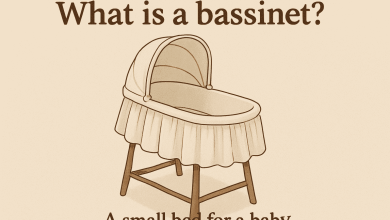Dealing With A Child’s Challenging Behaviors

Parenting is an incredibly rewarding and challenging experience, and sometimes, raising a child also feels like a real roller coaster of emotions. You will often notice your child’s challenging behavior in ways that feel difficult to manage.
When you notice that your child’s behavior is challenging, you might feel exhausted. But you shouldn’t get frustrated; the good thing about all this is that things can change. With support, you can experience a more positive family life. Lots of ideas and strategies help you deal with difficult moments.
“When little people are overwhelmed by big emotions, it’s our job to share our calm, not join their chaos.” ― L.R. Knost, Author.
Why Do Children Behave In Challenging Ways?

It’s normal for children to show different emotions that come with anger, and as a parent, you need to understand that the way your child behaves is a communication about how they’re feeling. When you notice your child acting out in challenging ways, there is a high chance that the feelings are going on under the surface that you cannot see. It is often not understandable that the child may not be aware of these feelings, and as a parent, you need to talk about them.
Underneath the behavior, a child may feel angry, anxious, confused, tired, stressed, hurt, jealous, bored, or something else. Regardless, you as an adult need to remember that the behavior you see is not the whole story.
Talking About The Behaviour
When you notice your child acting out, start a conversation about what’s happening. It’s understandable that it often feels like the hardest bit. The challenging situation may be such that you will notice that your child might not want to talk. The child might find it hard to recognize that there is a problem. In that case, you can start a conversation while doing an activity together. With that, you can be assured that the child can relax by making it feel like less of a ‘big chat.’ Go for a walk, do something creative, cook, or bake together. When you find your child cannot talk, start a conversation by text.
Explain Why The Behavior Is Not Acceptable.

Your child needs to understand why their behavior is not okay. While feeling angry is normal, it hurts other people’s feelings.
Handle The Matter With Care.
It’s valuable to understand things from their perspective. It’s worth letting the child know it’s okay to feel however they feel: sad, angry, worried, or something else. Reassure them that you’ll be there to love them and that you want to help them feel happier and enjoy things again.
Keep Instructions Simple And Short.
Setting rules is important as it will benefit your child to know what behavior is expected of them. To enforce this, you need to keep your instructions simple and short. While setting the rules for your child to follow, make sure your child understands these. Give a short and simple instruction about the behavior you expect from him or her.
Positive Reinforcement
A positive approach is a must when managing your child’s behavior. One of the best things you can do is reward good behaviors often and focus on the positive aspects of your child’s behavior. There is no point in directing attention to negative behaviors.
Reinforcing positive behaviors before they become negative encourages your child by giving attention to the positive behavior. Rather than waiting until they become too rough, it’s a great decision, and one has to focus on the negative behavior. Be specific about what behaviors you like and want to encourage.
One of the best approaches is to consider implementing a positive behavior system in your home. A reward chart for younger children adds incentive to increase desirable behaviors.
However, always ensure you are trying your best to be a role model for your child.
Consequences For Negative Behavior

When you notice that your child is breaking the rules, you need to actively communicate to them that they are doing the wrong thing. Also, let them know you will give them a second chance to correct the behavior.
But if you notice that the negative behavior continues, you need to let them know of a logical, age-appropriate consequence to carry through with. Immediate consequences are more effective than delayed consequences.
You can opt for Time-out as a solution, but at the same time, note that it should not be used to make the child suffer. Remove your child from the situation for a few minutes, and then give them the opportunity to change their behavior.
Keep the child in time-out for a maximum of one minute. But at the same time, keep in mind that Leaving your child in time-out or isolation for longer periods causes them to become more distressed. If the child continues to misbehave after the time-out has finished, put them back into time-out for another session or two; as you know, the inappropriate behavior will continue.
Always keep in mind that being consistent with your approach will make it easier for the children to understand what is expected of them, but at the same time, note that Negative discipline can be harmful.
Physical discipline done to a child to cause physical pain or discomfort includes smacking, spanking, slapping, hitting, pinching, or pulling. There are long-lasting negative effects on a child, including:
- Increased aggression and antisocial behavior
- Low self-esteem
- Teaching violence is OK
- Mental health problems
- A poor relationship shared between the child and parents.
Final Words
It’s understandable that managing a child’s inappropriate behavior is very tedious, but no matter what, be kind to yourself. Remember that you are putting in the necessary efforts to fix the issue and doing your best. Sometimes, it becomes helpful to reach out to other parents. As it proves to be very reassuring to hear what they are struggling with and how they have handled difficult situations. Someone who gets it when you need to talk is going to help you a lot in the long run.
Related Post
Why Sex Education Is Important?




